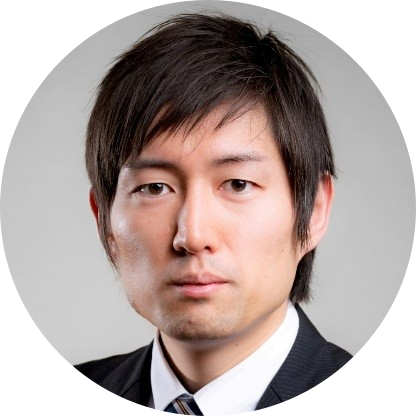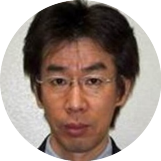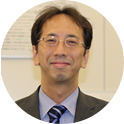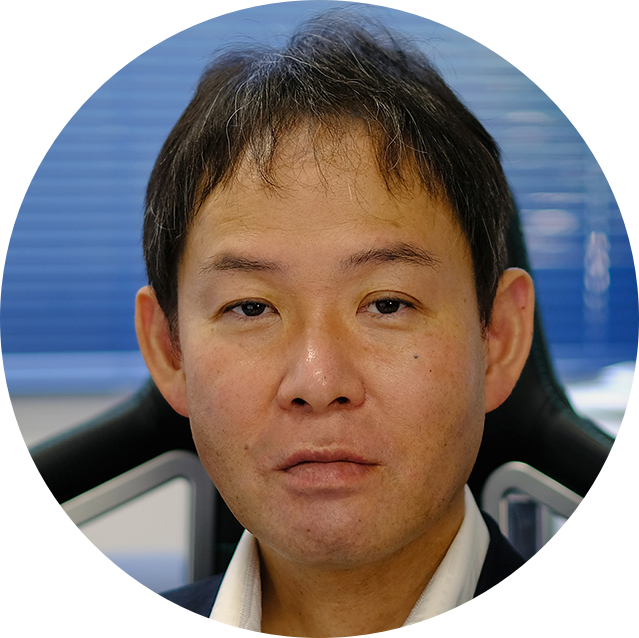
Prof. Ken-ichi Uchida
National Institute for Materials Science / The University of Tokyo, Japan
Speech Title: Spin Caloritronics and Transverse Thermoelectrics
Abstract: Spin caloritronics is a fusion research field that combines spintronics with thermoelectrics and thermal energy engineering [1]. In this field, many experimental and theoretical studies have focused on clarifying novel physics and functionalities arising from the interplay between heat, charge, and spin currents. Spin caloritronics has rapidly developed since the discovery of the spin Seebeck effect, where a spin current is generated from a heat current in magnetic materials. Subsequently, the anomalous Nernst effect, one of the thermoelectric effects unique to magnetic materials, has attracted significant attention owing to its intriguing mechanism related to topological structures of the electronic structure. One of the important functionalities realized by these phenomena is the transverse thermoelectric conversion, where the input heat current and the output charge current are orthogonal [2,3]. This symmetry allows for a simpler structure of thermoelectric conversion modules compared to conventional Seebeck devices, thereby significantly enhancing their versatility. Materials science studies to enhance the transverse thermoelectric conversion performance is being conducted worldwide to realize next-generation energy harvesting and heat sensing technologies that leverage the functionalities of spin caloritronics. Although the thermopower generated by the spin Seebeck and anomalous Nernst effects is currently much smaller than that by the Seebeck effect, the transverse thermoelectric conversion performance of spin-caloritronic phenomena has increased dramatically in recent years due to the introduction of new principles, new materials, and composite/hybrid materials [4]. Recently, research on “thermoelectric permanent magnets” that combine permanent magnet features with high-performance transverse thermoelectric conversion has been advancing [5], and transverse thermoelectric conversion modules with power generation densities larger than those of commercial Seebeck modules have been fabricated [6].
In this talk, we will show history, recent progresses, and prospects of spin caloritronics and report on the status of research and development of the transverse thermoelectric conversion.
Biography: Ken-ichi Uchida received his doctoral degree from Tohoku University, Japan, in 2012. After working as an Assistant/Associate Professor (2012-2016) at Tohoku University and as a Group Leader at NIMS (2016-2023), he has been a Distinguished Group Leader at Research Center for Magnetic and Spintronic Materials, NIMS, since 2023 and a Professor at Graduate School of Frontier Science, The University of Tokyo, Japan, since 2024. He has been leading JST ERATO project since 2022 and working mainly on spin(calori)tronics, thermoelectrics, and thermal energy engineering.

Prof. Hisaki Watari
Tokyo Denki University, Japan
Biography: Hisaki Watari is a Professor in the Division of Mechanical Engineering at the Faculty of Science and Technology, Tokyo Denki University, and Professor Emeritus at Gunma University. He received his B.Eng. in Naval Architecture from Kyushu University and his Ph.D. in Mechanical System Engineering from Gunma University. After serving at Oyama National College of Technology, he joined Gunma University as an Associate Professor and later became a Professor. In 2015, he was awarded the title of Professor Emeritus and subsequently moved to Tokyo Denki University, where he continues to engage in research and education. From 1999 to 2000, he was a visiting researcher at UMIST under a Japanese Government Scholarship. Since 2014, he has served as Chair of the Japan Association of Aluminum Forging Technology.
Prof. Watari’s research focuses on cold roll forming and lightweight metallic materials, particularly aluminum and magnesium alloys. His expertise spans advanced solidification, forming processes, and microstructural control. He is internationally recognized for his contributions to twin-roll casting (TRC), rapid solidification of Mg alloys, interfacial control in dissimilar-metal bonding, and the development of high-performance multi-material structures. His recent work integrates AI-assisted simulations of solidification, deformation, and interfacial phenomena, as well as studies on Mg/Al bonding and metal–polymer hybrid laminates. In addition, he has recently achieved notable results in manufacturing-oriented research fields such as high-precision drawing of high-aspect-ratio EV battery cases and high-speed forming of aluminum alloy wire for 3D printing applications.
Prof. Watari has authored numerous journal articles, conference papers, and invited lectures in materials processing and manufacturing engineering, and has collaborated extensively with universities, research institutes, and industrial partners in Japan, Europe, and Asia. He has served on scientific committees for several international conferences on metal casting and forming, contributing to the advancement of lightweight technologies and sustainable manufacturing for next-generation mobility and energy systems.

Prof. Shigeru Horii
Kyoto University of Advanced Science, Japan
Biography: Shigeru Horii is currently a Professor and the Department Head in the Faculty of Engineering at the Kyoto University of Advanced Science (KUAS), Kyoto, Japan. He obtained Dr. Eng. from the Nagoya University, Nagoya, Japan, in 1999. He worked at Institute of Solid State Physics and Department of Superconductivity of the University of Tokyo, Tokyo, as a post-doctoral fellow of JSPS from 1999 until 2000. He joined Department of Superconductivity and Department of Applied Chemistry of the University of Tokyo as an Assistant Professor from 2000 until 2009, then worked at the Kochi University of Technology, Kochi, as an Associate Professor from 2009 until 2013. He worked at Graduate School of Energy Science of the Kyoto University, Kyoto, as an Associate Professor from 2013 until 2019. He joined the Faculty of Engineering of KUAS in 2019 and is focusing on triaxial magnetic alignment in layered functional materials and design of magnet arrays for the generation of modulated rotating magnetic fields as research topics.

Prof. Takashi Sumigawa
Kyoto University, Japan
Biography: Takashi Sumigawa received his B.S. in Mechanical Engineering from Okayama University (Okayama, Japan) in 1996, and his M.S. and Ph.D. in Mechanical Engineering from Kyoto University (Kyoto, Japan) in 1998 and 2002, respectively. From 2002 to 2005, he worked as a Researcher at the Mechanical Engineering Research Laboratory, Hitachi, Ltd. (Tsuchiura, Ibaraki, Japan). He then served as an Assistant Professor at the Graduate School of Engineering, Kyushu University (Fukuoka, Japan) from 2005 to 2006. In 2006, he joined the Graduate School of Engineering, Kyoto University as a COE Researcher, and was appointed Junior Associate Professor in 2007. In 2011 He was promoted to Associate Professor in that Institution, and became Full Professor at the Graduate School of Energy Science, Kyoto University in 2021. His current research interests include in situ mechanical characterization of nano- to micro-scale materials using electron microscopy, as well as the design and mechanics of mechanical metamaterials with unique mechanical functionalities.